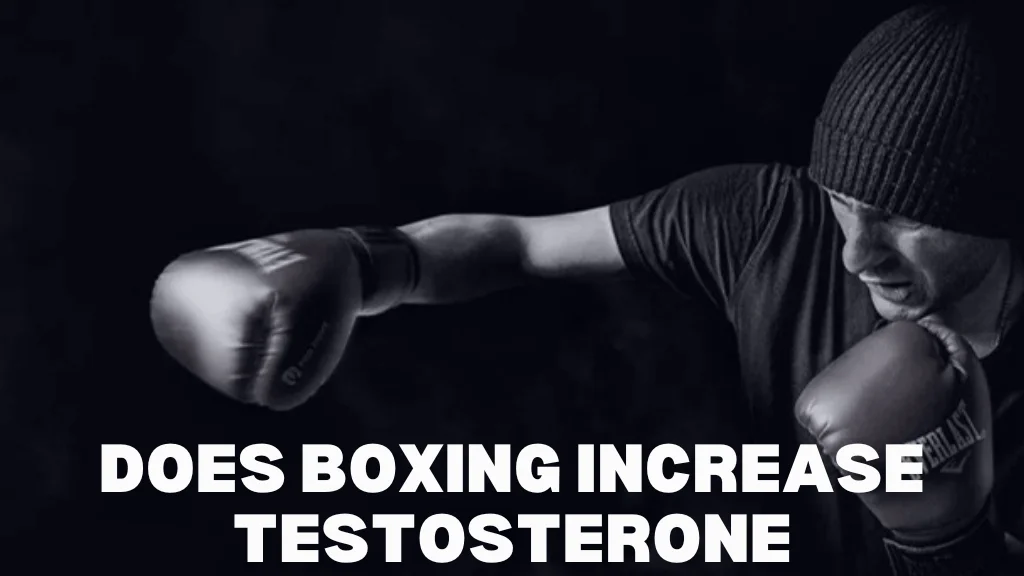In the world of fitness and sports performance, one question has been sparking curiosity among athletes, trainers, and health enthusiasts alike: Can boxing boost testosterone levels? Testosterone, a hormone often linked with male traits, has a far greater impact than just influencing physical appearance. It plays a central role in muscle growth, recovery, energy regulation, mood stability, and overall vitality. This article takes a deep dive into the science behind boxing and testosterone, examining whether this demanding sport truly stimulates hormonal changes and if so, why.
Understanding Testosterone and Its Role in the Body
Testosterone is a naturally occurring hormone produced mainly in the testes in men and in smaller amounts in the ovaries in women. The adrenal glands in both sexes also contribute small amounts. While it’s often described as the “male hormone,” testosterone is essential for health in everyone. In men, it is responsible for developing secondary sexual characteristics such as increased muscle mass, facial hair, and a deeper voice. In both men and women, testosterone supports mood regulation, bone density, metabolism, and energy levels.
Research in endocrinology consistently shows that testosterone influences protein synthesis, which is why it is so vital for muscle repair and growth after exercise. It also plays a role in fat distribution and red blood cell production, meaning that maintaining healthy levels can affect both physical performance and endurance.
Why Optimal Testosterone Levels Matter
Optimal testosterone levels are not simply a bonus for athletes — they are a cornerstone of health, especially for those pursuing physical training or competitive sports. When levels are balanced, the body functions more efficiently in multiple areas.
Muscle development is one of the most visible benefits. When testosterone is at a healthy level, the body becomes more efficient at building and maintaining lean muscle tissue, which contributes to strength, agility, and power. Beyond muscle, testosterone enhances metabolic efficiency, allowing the body to burn calories more effectively and maintain a healthy weight. This is why athletes often prioritize routines and nutrition plans that support hormonal balance.
Mood regulation is another important factor. Studies have linked optimal testosterone to improved emotional well-being, confidence, and resilience under stress. When the hormone is deficient, individuals may experience fatigue, irritability, and even depressive symptoms. For someone engaged in high-intensity sports like boxing, a stable and positive mental state can directly influence performance and recovery.
Exercise as a Natural Testosterone Booster
One of the most reliable, non-medical ways to support testosterone production is through consistent physical activity. Scientific evidence points to both resistance training and high-intensity interval exercise as effective stimulators of testosterone release. Physical activity causes small, controlled stress responses in the body, which in turn trigger adaptive hormonal changes.
Cardiovascular exercises such as running, swimming, and cycling improve circulation, oxygen uptake, and fat metabolism, all of which contribute indirectly to hormonal balance. However, weight training, with its ability to cause microtears in muscle fibers, has a more direct link to testosterone increases. The repair process for these microtears requires hormonal involvement, and testosterone is central to that process.
Sports like boxing stand out because they blend the best of both worlds — intense cardio bursts and explosive strength demands. This combination creates a unique training stimulus that benefits not only skill development but also hormonal health.
How Boxing Influences Testosterone
When we look closely at boxing’s demands, it becomes clear why this sport may have such a strong effect on testosterone. Boxing sessions typically include rapid, explosive movements such as hooks, jabs, and uppercuts, paired with defensive maneuvers, footwork, and endurance-based drills. Each movement taxes different muscle groups, often in a short, high-intensity burst, which is ideal for stimulating testosterone release.
Unlike steady-state cardio, boxing keeps the heart rate fluctuating between moderate and high intensity, creating an environment similar to high-intensity interval training (HIIT). This is important because HIIT has been shown in studies to promote higher post-exercise testosterone levels compared to steady-state endurance training.
Boxing is also a full-body workout. Your legs drive movement and stability, your core provides rotational power, and your upper body delivers the strikes. This simultaneous engagement of multiple muscle groups leads to greater overall muscular stress, which encourages the hormonal systems to respond.
The Science Behind the Hormonal Response
From a physiological perspective, the connection between boxing and testosterone can be explained through muscle recruitment, neuromuscular activation, and metabolic demand. Explosive boxing movements rely heavily on Type II muscle fibers, which are associated with strength and power. Training these fibers has been shown to stimulate greater hormonal responses compared to predominantly endurance-based training.
Moreover, the intensity of a boxing match or training session pushes the body into a heightened metabolic state. The more energy the body expends, the greater the need for repair and adaptation — processes in which testosterone plays a key role. Recovery after such sessions triggers protein synthesis, tissue repair, and neural adaptation, all of which are enhanced by this hormone.
The psychological aspect should not be underestimated either. Boxing requires mental focus, reaction time, and stress management. The reduction of psychological stress through endorphin release indirectly benefits testosterone balance, as chronic stress is known to suppress hormonal function.
Nutrition, Lifestyle, and Recovery for Testosterone Support
Even the most intense boxing regimen won’t maximize testosterone levels without proper lifestyle support. Nutrition is critical, as the body needs a balance of macronutrients and micronutrients to produce hormones effectively. Protein from lean meats, fish, and plant sources supports muscle repair. Healthy fats from sources like avocado, olive oil, and fatty fish provide the cholesterol needed for hormone synthesis. Minerals like zinc and magnesium, found in nuts and leafy greens, are essential cofactors in testosterone production.
Hydration is another often-overlooked factor. Dehydration can impair both physical performance and hormonal balance, so boxers should aim for consistent fluid intake before, during, and after training.
Recovery is equally important. Sleep, in particular, is where the body produces the majority of its daily testosterone. Research suggests that getting fewer than six hours of sleep per night can lead to significant reductions in testosterone levels. Active recovery days, stretching, and low-intensity activities also allow the nervous system to reset, preventing overtraining — which can actually lower testosterone.
Individual Differences and Realistic Expectations
It’s important to note that not everyone will experience the same testosterone boost from boxing. Age, baseline fitness, training intensity, and genetics all play a role. For example, younger athletes may see sharper increases, while older athletes might need to combine boxing with other strength-based activities for maximum benefit.
Also, while boxing can elevate testosterone, it is not a substitute for medical treatment in cases of clinically low hormone levels. In such instances, working with a healthcare professional is essential.
Conclusion
Boxing offers far more than physical conditioning and self-defense skills it has the potential to positively influence hormonal health, particularly testosterone production. By combining explosive strength, cardiovascular endurance, and mental resilience, boxing creates a training environment that naturally stimulates the body’s adaptive systems.
For the best results, boxing should be paired with a nutrient-rich diet, proper recovery, and consistent training. Whether you are a professional fighter, a recreational athlete, or simply someone looking to improve overall fitness, understanding the link between boxing and testosterone can help you train smarter and more effectively.
FAQs
Can women benefit from increased testosterone through boxing?
Yes, women can experience benefits from increased testosterone, including improved physical fitness and muscle development.
What is the ideal training frequency for optimizing testosterone?
The ideal training frequency varies among individuals, but consistency in training is key to maintaining healthy testosterone levels.
How long does it take to see changes in testosterone levels through boxing?
The time it takes to see changes in testosterone levels can vary, but consistent training over weeks to months is typically required.
Related Post:




